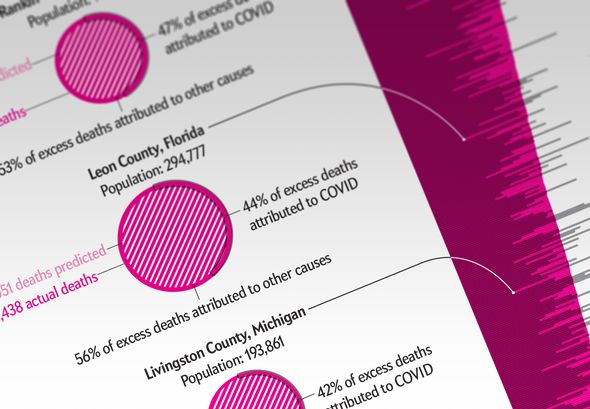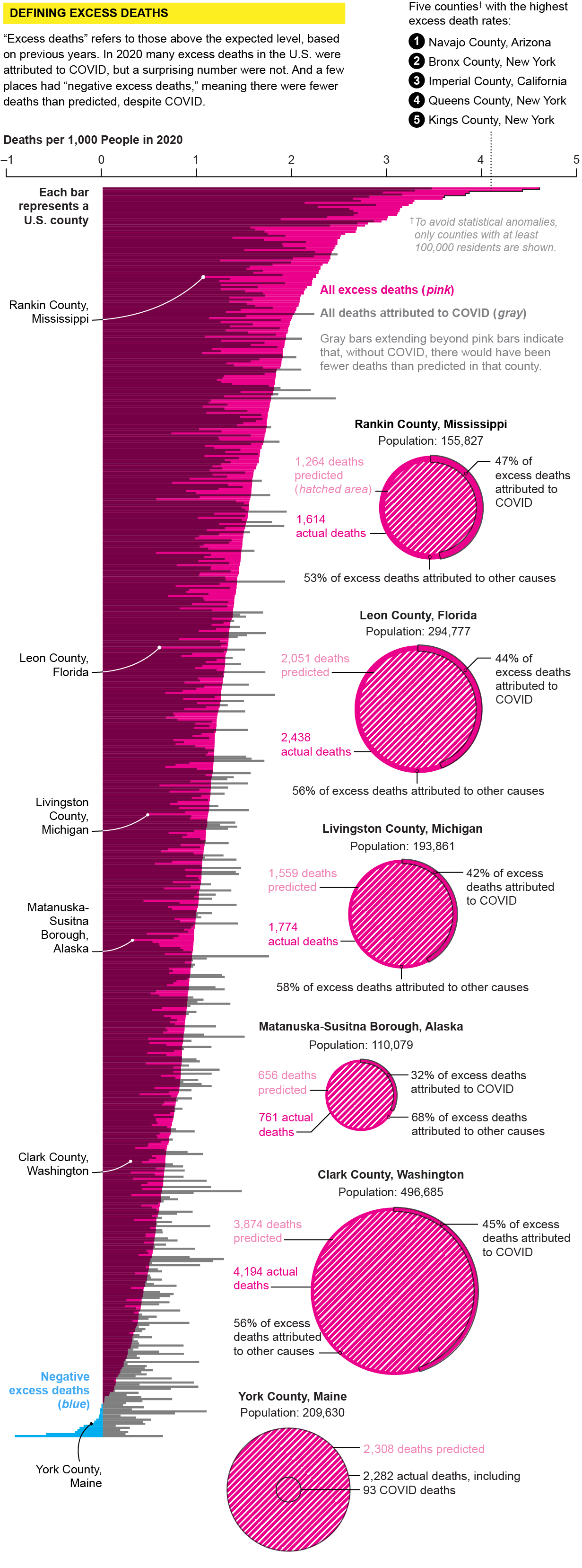Many of the unexpected deaths in rural U.S. counties last year were not recorded as caused by COVID

The official U.S. death toll from COVID has surpassed 600,000, but the true number is likely much higher. In a preprint study, global health professor Andrew C. Stokes of Boston University and his colleagues found that in 2020 in U.S. counties with significant excess deaths (deaths beyond the expected number), only 82 percent of them on average were attributed to COVID.Some of the biggest gaps were in rural counties, particularly in the South and West. These gaps may reflect COVID deaths that were misattributed to other causes or indirect deaths resulting from the pandemic’s social and economic impacts.
An acute shortage of COVID testing early on meant that many patients never got tested. Coroners or other elected officials who lack medical experience may not have recognized COVID as the cause of death or may have declined to list it for political reasons, Stokes and his team hypothesize. Some New England counties actually had negative excess deaths last year—fewer people died than usual—possibly the result of reductions in other causes of death while people stayed at home, the researchers say.

*Excess deaths were calculated using provisional mortality data reported as of June 3 and may be subject to change.
This article was originally published with the title “COVID’s Hidden Toll” in Scientific American 325, 3, 84 (September 2021)
doi:10.1038/scientificamerican0921-84
ABOUT THE AUTHOR(S)

Tanya Lewis is a senior editor at Scientific American who covers health and medicine.
Credit: Nick Higgins

Amanda Montañez is an associate graphics editor at Scientific American.
Note: This article have been indexed to our site. We do not claim legitimacy, ownership or copyright of any of the content above. To see the article at original source Click Here













